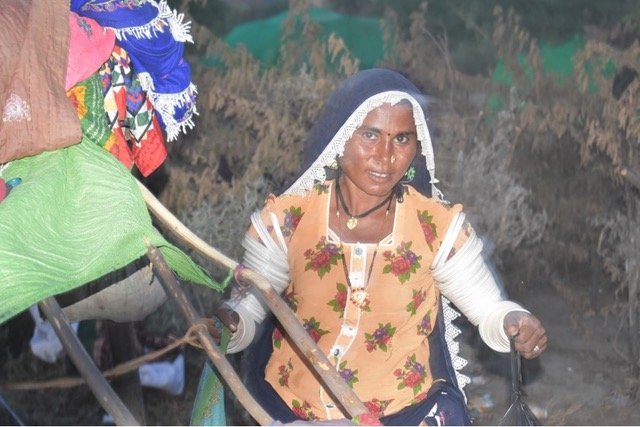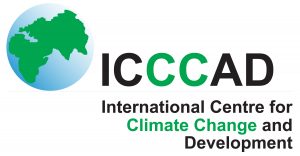COP29 South Asia Regional Resilience Hub
The COP29 South Asia Regional Hub is led by International Centre for Climate Change and Development (ICCCAD).The South Asia Regional Hub is delivering a programme of virtual event to engage different stakeholders and bring local voices to the global stage in the lead up to COP29.
Sign up to the Resilience Hub newsletter and follow us on LinkedIn and X/Twitter to be the first to hear about dates and programming for the South Asia Region Resilience Hub.
The Regional Resilience Hubs (Reg Hubs) play a crucial role in delivering the overarching vision for the Resilience Hub; by ensuring the voices and perspectives of the most vulnerable and climate affected are amplified and increasingly drive the global resilience agenda in the next ten years. The South Asia Regional Resilience Hub will build a regional momentum that stays committed to the agenda. This year, the hub aims to take a significant step forward by collaborating with South Asian organizations, stakeholders, researchers, and climate change experts. The hub will provide virtual/in-person platforms to connect them with the Resilience Hub activities, prioritizing local expertise and initiatives, fostering greater engagement and collaboration in resilience efforts in South Asia. By sharing experience and knowledge, we aim to strengthen resilience building in South Asia and amplify local voices pre-COP29.
The concept note of this year’s South Asia Regional Hub strategy will be found here.
Key Messages
The interactive and engaging sessions from the South Asia Regional Resilience Hub Virtual Sessions produced a set of powerful key messages in 2022 and 2023, giving a vivid idea of the challenges faced and the aspirations of the communities in the region, already dealing with the impacts of climate change.
We also commissioned a series of cartoons to capture the key findings, discussions and challenges which you can view here in addition to social media cards of South Asia Resilience Hub 2022 and the key messages with Highlighted Challenges and Strategies from around South Asia from the South Asia Resilience Hub 2023 in the form of key card you can use to spread awareness of the South Asia Resilience Hub in 2022 and 2023.
Some of the key messages include:
SARH 2022
- When communities build from within, their collective capabilities improve and the nature of their relationship with the outside changes.
- Preparedness starts long before a crisis and hence building organizational resilience long before can reduce loss and damage.
- Strategic finance can transform existing structures and relationships, redistribute power amongst local actors and keep the community at the heart of their own development.
SARH 2023
- Climate change impacts vary across South Asia but adaptation can be strengthened through shared learning and community empowerment.
- Operational mechanism of Loss and Damage fund should be flexible to amplify access by the vulnerable counties.
- Youth engagement in addressing critical issues related to sustainable energy, infrastructure, and mobility is important as the youth demonstrated passion, creative thinking, and commitment to collaboration and partnership.
- Women in rural communities are at the forefront of coping with climate extremes, but they face significant work pressure and need more support.
Programme of Events
This year, we aim to take a significant step forward by collaborating with South Asian organizations, stakeholders, researchers, and climate change experts. We will provide virtual /in-person platforms to connect them with the Resilience Hub activities, fostering greater engagement and collaboration in resilience efforts.
Objective: To provide an opportunity for those on the frontlines of climate impacts in all their diversity to influence global dialogues on resilience and adaptation at COP29.
- Collaborating with local organizations to share the responsibility of enhancing local capacity through initiatives.
- Prioritizing regional learning in response to the climate aspects
- Spotlighting and presenting new initiatives embraced by communities in the South Asia Region.
- To facilitate an inclusive Resilience Hub work plans and its associated engagements events that actively engages women and other gender diversities, young people, people with disabilities and indigenous peoples and showcases thought leadership, experience and expertise from the Global South.
- Build a communication network strategy between the stakeholders for ensuring collaboration
Focusing on the objectives the tentative events will be followed:
- One Regional Virtual Event (South Asia Regional Hub Virtual Event )
- New York Climate Action Week (September 2024)
- COP29 Regional Resilience hub Virtual Summit (October 2024)
- COP29 (November 2024)

Video
Virtual Event Session Recording 2022
Videos from past years’ South Asia Regional Hub activities can be viewed here or on our YouTube channel. Navigate the playlist using the drop-down list in the top right of the player.
Virtual Event Session Recording 2023
Navigate the playlist using the drop-down list in the top right of the player.
Partners & co-hosts
The South Asia Resilience Hub is presently organized by International Centre for Climate Change and Development (ICCCAD) and the Gobeshona Platform led by ICCCAD.
Last year Session Co-Hosts:
- International Rice Research Institute (IRRI), International Maize and Wheat Management Institute (IWMI), International Potato Centre (CIP)
- SAJIDA Foundation
- Bangladesh Agricultural University
- ActionAid Bangladesh
- Christain Commission for Development in Bangladesh – (CCDB); Bangladesh Wheat and Maize Research Institute
- Universal Versatile Society (India) and Nisarg Foundation (India)
- Karnali Integrated Rural Development and Research Centre(KIRDARC)
- Institute of Development Studies, University of Sussex (UK), All India Disaster Management Institute (AIDMI)
- Miyamoto International
- Asian Youth Empowerment for COP (AYE!forCOP) A YOUNGO initative
- Manusher Jonno Foundation
- Institute of Development Studies (IDS), University of Sussex
- United Nations Development Programme (UNDP)
- Adaptation Fund Climate Innovation Accelerator (AFCIA/ISGAP):
- Eminate
- Friendship NGO
- UNCDF LoCAL
- Microsave Consulting and GSMA
- Concern Worlwide
- Unicef

